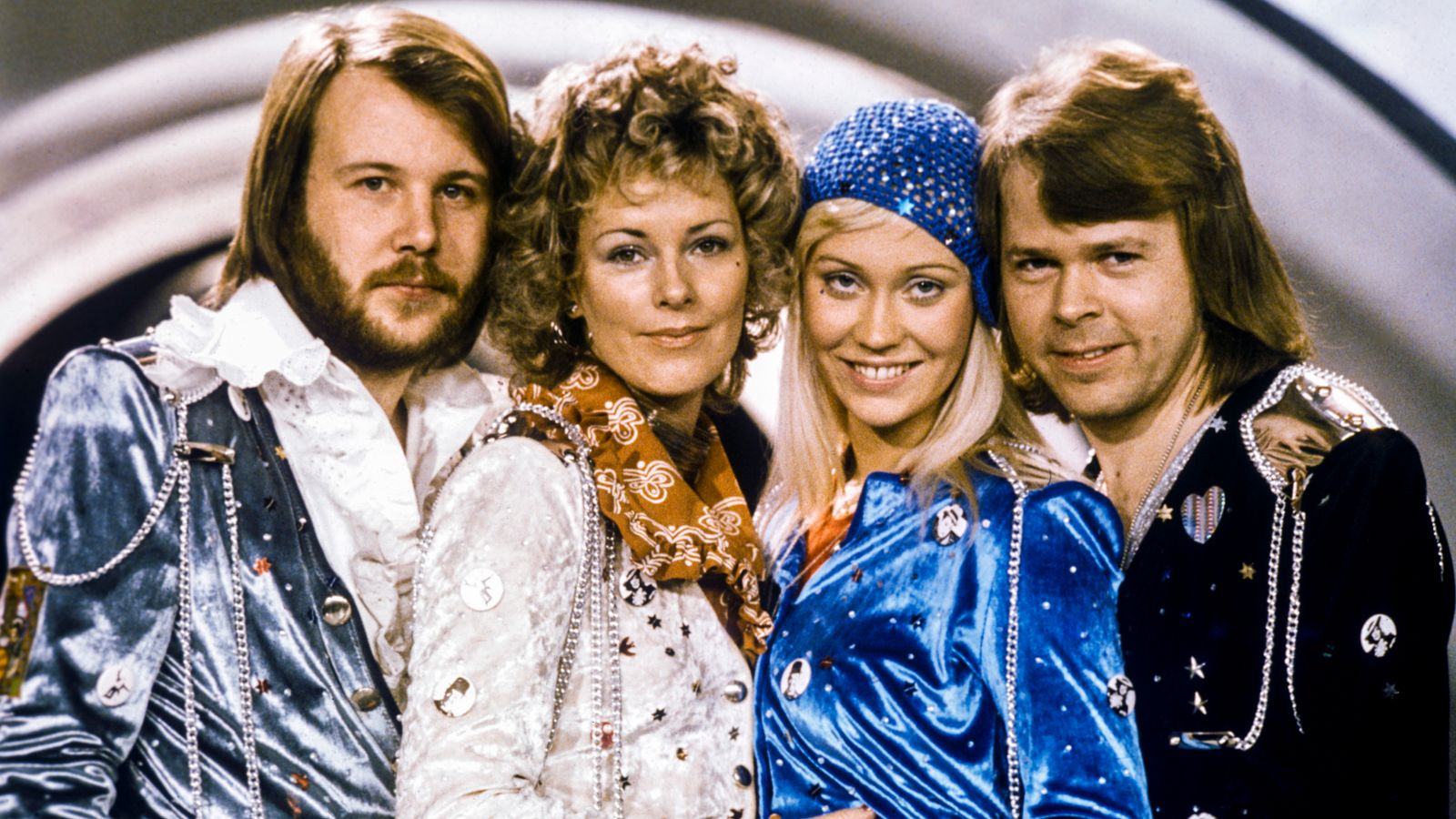ABBA star Björn Ulvaeus has said the success of Waterloo took the band from “a rat race” to being able to spend time honing their craft – a luxury many songwriters today simply cannot afford.
Released in 1974, the song was the band’s first big hit, reaching the top of the charts in the UK and winning the Eurovision Song Contest for Sweden.
ABBA, of course, went on to become global superstars and now sit among the best-selling music artists of all time, with hits including Dancing Queen, Mamma Mia and Fernando, to name just a few.
Ulvaeus highlighted Waterloo’s success and what it meant for the band in an interview with Sky News, following the publication of a report he has worked on looking into how the song economy can be rebalanced.
The issue of royalties from streaming has been brought to the fore during the COVID-19 pandemic, as artists have been unable to make money from touring, but the report by MIDiA Research and Ulvaeus also addresses fairness for songwriters, too.
“Before we won the Eurovision Song Contest with Waterloo, (fellow ABBA star) Benny Andersson and I had been in a rat race,” he said. “We were running around producing other people’s records, writing songs for other people, even going on tours in different constellations just to pay the rent.
“But from Waterloo, when the royalties came pouring in, from that time we could afford to say no to everything else and just concentrate on the writing. That’s when you get better at it. And that’s what I wish for most songwriters today.”
Artists including Noel Gallagher, Robert Plant, Lily Allen and Rebecca Ferguson were among a host of stars who signed an open letter to Boris Johnson in April, calling on the prime minister to take action and update the law on streaming rights.
It followed a government inquiry into how revenue from streaming is distributed, and as many musicians are speaking out about how little they get paid through the current system.
Ulvaeus says the industry needs to change and is proposing a “fan-centric” streaming model, which would see users’ subscriptions going directly to the artists and people involved in the songs they are listening to.
The core of the music industry “for me has always been the song”, he said, but “somehow the songwriters have always been regarded as something on the periphery rather than the star of the whole thing”.
Ulvaeus continued: “I think that more and more people realise that the ecosystem is dysfunctional. It needs to be so that no party is unhappy. And as it is right now, more and more songwriters have to drive Ubers because of the imbalance.
“There are several factors in this. There is the way that royalties are calculated from streaming services, which is… every month the money goes into a big pot and then that is divided by the total number of clicks that month, which means that each click gets very, very little money.
“Most clicks go to the people who have been the mega players and very little money goes to the people underneath that absolute elite layer. And so what I propose is a kind of user-centric, fan-centric model in streaming, where your subscription goes exactly to the people that you play.”
Would streaming platforms be happy to make a change?
“Not happy,” says Ulvaeus, but he thinks it is inevitable, and that users should be prepared to pay more for the music they are listening to.
“It will be something [streaming platforms] have to make, I think, because it used to be that the elite songwriters could always make a living out of songwriting, but there was a layer underneath as well.
“And they could make a living during the physical era, and they could manage to push themselves up to the upper level through having the time and being able to afford to spend time on becoming better songwriters. It’s a talent, but it’s also a craft. And you have to hone your craft.”
Being able to hone his craft is what led to ABBA’s incredible back catalogue.
Speaking about the songs standing the test of time, Ulvaeus said: “I’m constantly amazed at that and really, I don’t know how it happened. We just recorded the songs the best we could and why it has stayed the way it has, I don’t know. It’s kind of a miracle – and I don’t mind it being a miracle.”






















